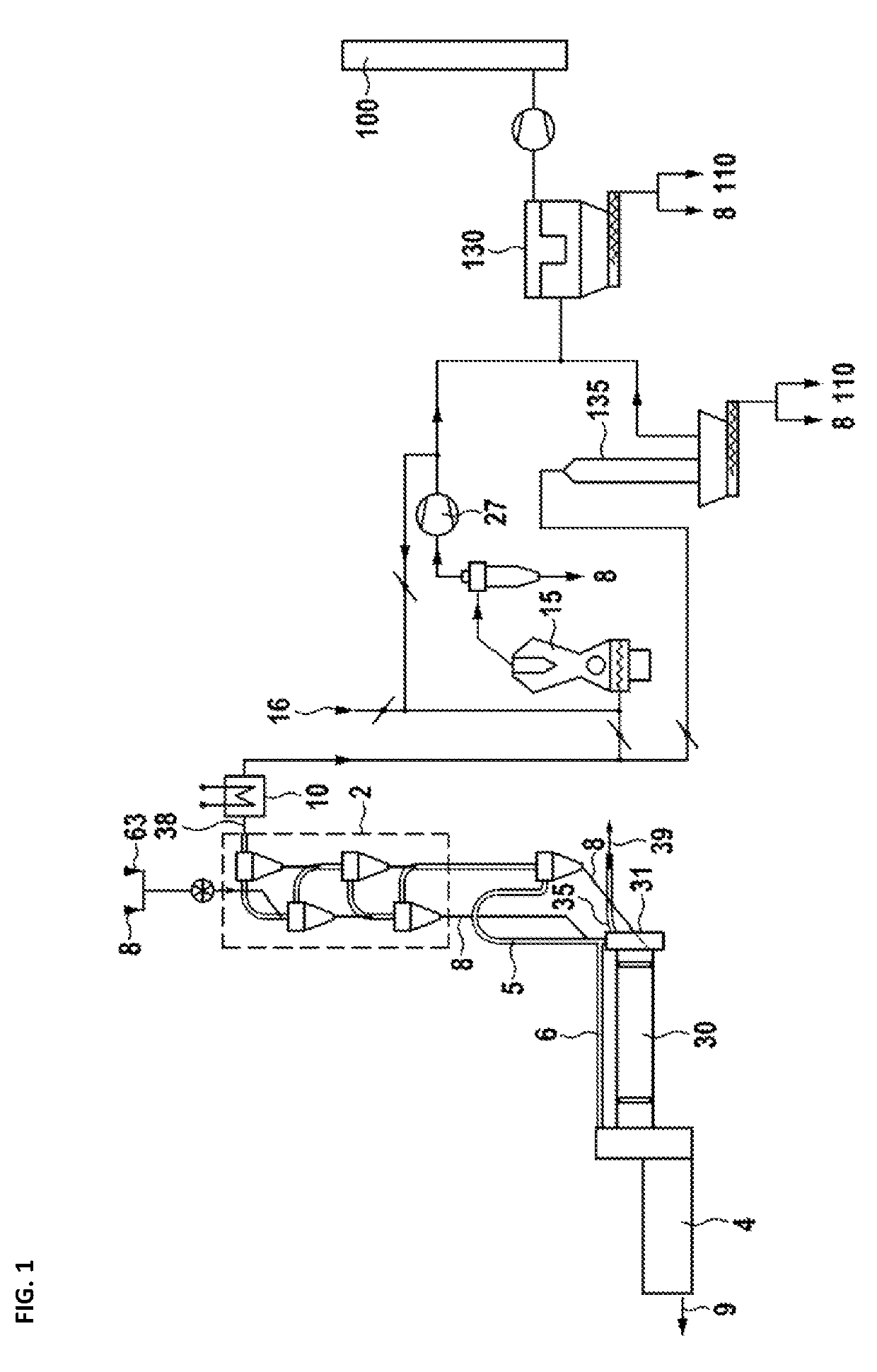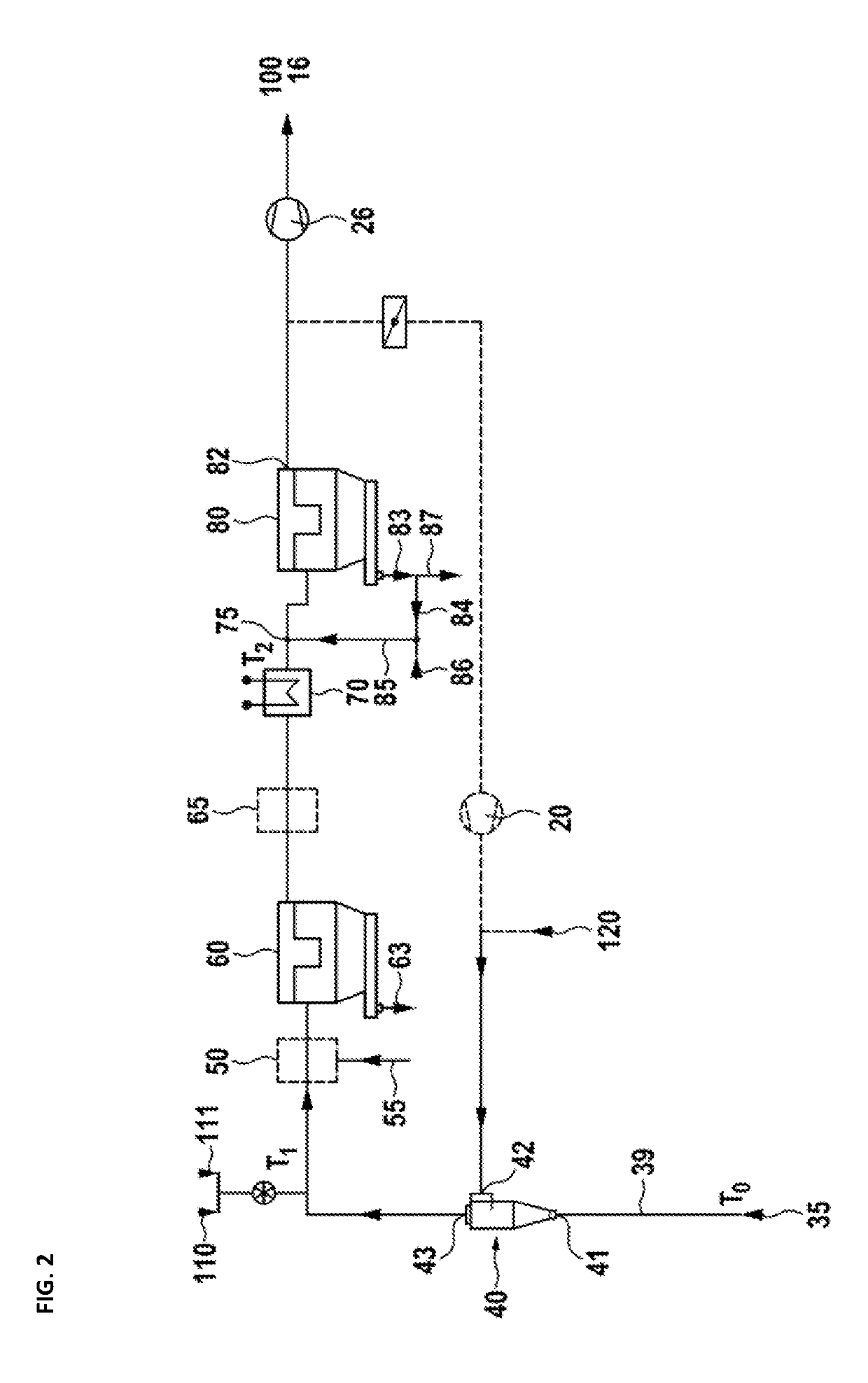Cement clinker line and a method for operating a cement clinker line
a cement clinker and cement clinker technology, which is applied in the direction of gas treatment, membrane technology, dispersed particle separation, etc., can solve the problems of unsuitable hot gas dedusting, unsatisfactory hot gas dedusting, and potential misinformation, so as to reduce operating costs
- Summary
- Abstract
- Description
- Claims
- Application Information
AI Technical Summary
Benefits of technology
Problems solved by technology
Method used
Image
Examples
Embodiment Construction
[0037]The cement clinker line in FIG. 1 comprises as usual a preheater 2, a kiln 30 and a clinker cooler 4. Raw meal 8 is preheated in the preheater 2 and provided to the kiln inlet 31. In the kiln 30 the raw meal 8 is calcined and sintered to clinker. The clinker 9 is discharged on the clinker cooler 4 and can be further processed after being cooled down (indicated by an arrow, symbolizing the clinker 9), e.g. by milling. Hot air from the clinker cooler 4 is provided to the kiln 30 as secondary air and leaves the kiln 30 at its inlet 31 as flue or exhaust gas. Said kiln exhaust gas is dust loaded and hot (typically 1500° C. to 2000° C.). The main amount of the kiln exhaust gas (briefly flue gas) is provided to the preheater 2 configured for pre-warming the raw meal 8. Optionally, a calciner 5 may be installed between the preheater 2 and the kiln 30. In that case the raw meal 8 is provided from the preheater 2 to the calciner 5 and from the calciner 5 to the kiln 30. At least a part...
PUM
| Property | Measurement | Unit |
|---|---|---|
| temperature T1 | aaaaa | aaaaa |
| boiling temperature | aaaaa | aaaaa |
| temperature | aaaaa | aaaaa |
Abstract
Description
Claims
Application Information
 Login to View More
Login to View More - R&D
- Intellectual Property
- Life Sciences
- Materials
- Tech Scout
- Unparalleled Data Quality
- Higher Quality Content
- 60% Fewer Hallucinations
Browse by: Latest US Patents, China's latest patents, Technical Efficacy Thesaurus, Application Domain, Technology Topic, Popular Technical Reports.
© 2025 PatSnap. All rights reserved.Legal|Privacy policy|Modern Slavery Act Transparency Statement|Sitemap|About US| Contact US: help@patsnap.com


